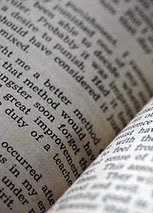|
Copyright
Articles submitted to the journal should not have been published before in their current or substantially similar form, or be under consideration for publication with another journal. Please see MAER Legal notice for details. Use this in conjunction with the points below about references, before submission i.e. always attribute clearly using either indented text or quote marks as well as making use of the preferred Harvard style of formatting. Authors submitting articles for publication warrant that the work is not an infringement of any existing copyright and will indemnify the publisher against any breach of such warranty. For ease of dissemination and to ensure proper policing of use, papers and contributions become the legal copyright of the publisher unless otherwise agreed.
The editor may make use of iThenticate software for checking the originality of submissions received. Please see our press release for further details.
Third party copyright permissions
Prior to article submission, authors should clear permission to use any content that has not been created by them. Failure to do so may lead to lengthy delays in publication. MAER is unable to publish any article which has permissions pending. The rights MAER requires are:
1. Non-exclusive rights to reproduce the material in the article or book chapter.
2. Print and electronic rights.
3. Worldwide English language rights.
4. To use the material for the life of the work (i.e. there should be no time restrictions on the re-use of material e.g. a one-year licence).
When reproducing tables, figures or excerpts (of more than 250 words) from another source, it is expected that:
1. Authors obtain the necessary written permission in advance from any third party owners of copyright for the use in print and electronic formats of any of their text, illustrations, graphics, or other material, in their manuscript. Permission must also be cleared for any minor adaptations of any work not created by them.
2. If an author adapts significantly any material, the author must inform the copyright holder of the original work.
3. Authors obtain any proof of consent statements
4. Authors must always acknowledge the source in figure captions and refer to the source in the reference list.
5. Authors should not assume that any content which is freely available on the web is free to use. Authors should check the website for details of the copyright holder to seek permission for re-use.
MAER is a member of the EEG Association and participates in the reciprocal free exchange of material with other EEG members. This may mean that in some cases, authors do not need to clear permission for re-use of content. If so, please highlight this upon submission.
Copyright forms
Where possible, MAER seeks to obtain copyright for the material it publishes, without authors giving up their scholarly rights to reuse the work.
Assigning copyright to MAER allows us to:
• Act on your behalf in instances such as copyright infringement or unauthorised copying
• Protect your moral rights in cases of plagiarism or unauthorised derivative works
• Offer a premium service for permission requests
• Invest in new platforms and services for the conferences or book series you have published in
• Disseminate your work as widely as possible, ensuring your work receives the citations it deserves
• Recoup copyright fees from reproduction rights organisations to reinvest in new initiatives and author/user services, such as the Research Fund Awards and the Outstanding Doctoral Research Awards.
If an article is accepted for publication in an MAER authors will be asked to submit a copyright form. All authors are sent an email with links to their copyright forms which they must check for accuracy and submit electronically.
If authors can not assign copyright to MAER, they should discuss this with the journal Editor.
|



